What clothing you need to survive the wettest, coldest days on a bike
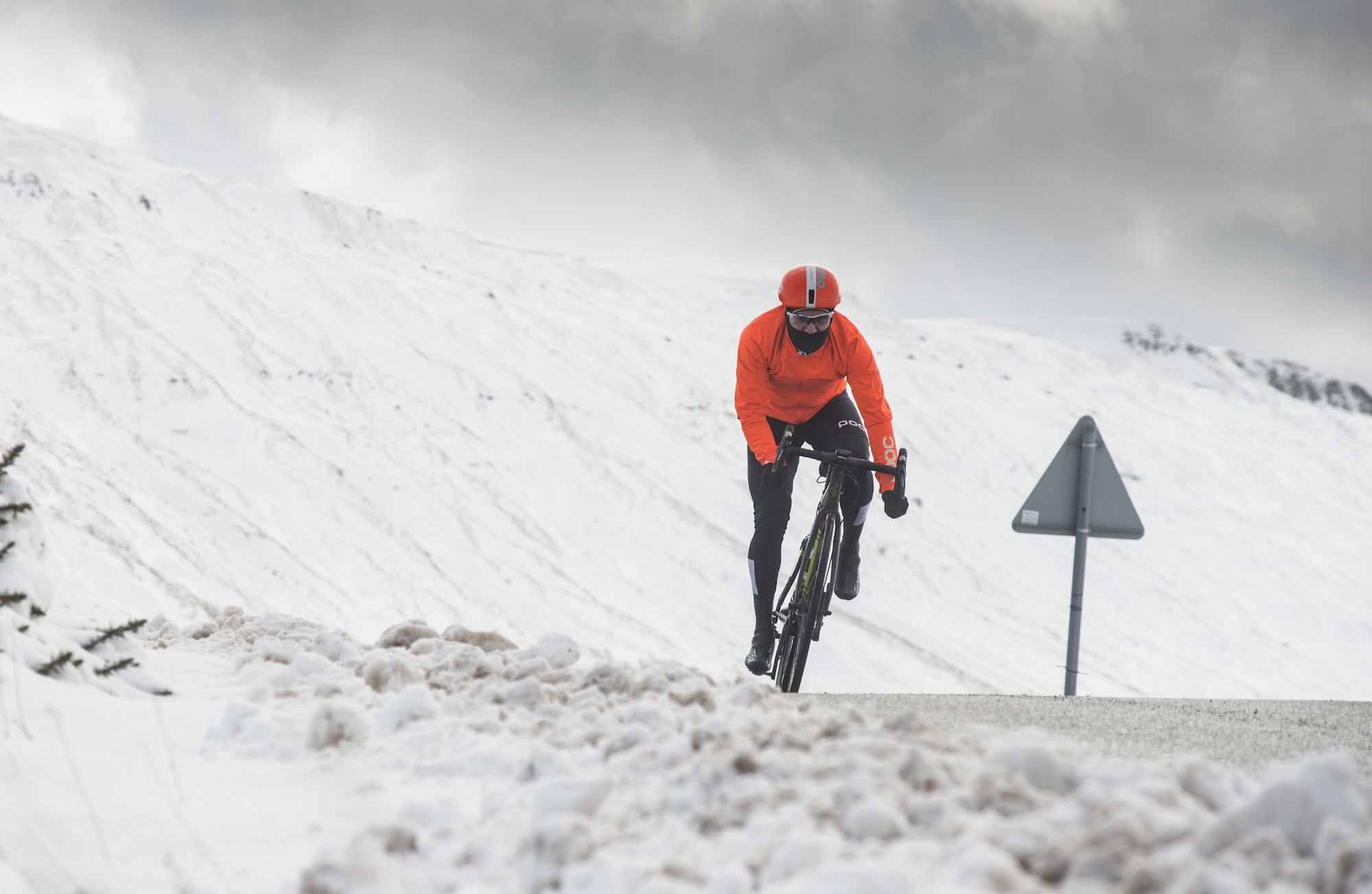
The latest race content, interviews, features, reviews and expert buying guides, direct to your inbox!
You are now subscribed
Your newsletter sign-up was successful
It's raining outside, the temperature is somewhere around the freezing mark, but still you want to persist: you're heading outside on your bike.
Riding all day in heavy rain and cold temperatures is a special kind of accomplishment, and while you're not going to get a tan like you do in the summer, the sense of personal satisfaction can overcome any summer ride.
But to enjoy such adventures, it's essential that you're wearing the right gear to overcome cold temperatures and wet weather.
Our pick of the best gear for the wettest, coldest winter riding
With each product is a ‘Buy Now’ or ‘Best Deal’ link. If you click on this then we may receive a small amount of money from the retailer when you purchase the item. This doesn’t affect the amount you pay
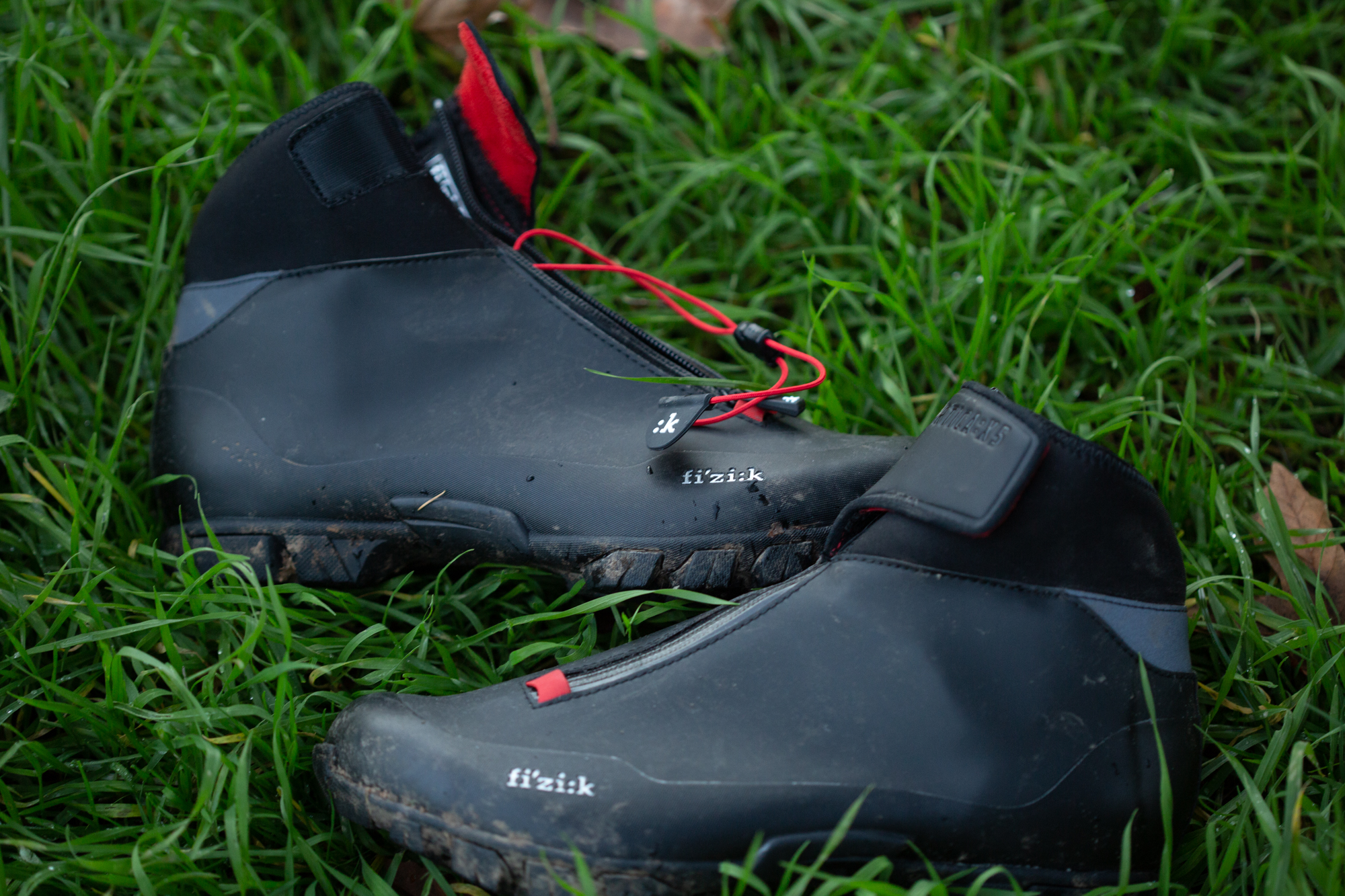
Fizik R5 Artica
Specifications
Reasons to buy
Reasons to avoid
If you are going to be riding long distances in the cold and wet you are going to want the best tool for the job, and the first time you put on a pair of winter cycling boots you'll wonder why you ever bothered trying to make summer shoes work.
Once you are ready to pick a pair of winter-specific cycling shoes look no further than the Fizik Artica options. Many winter cycling shoes are big, bulky, and tough to get on. The Fizik Artica is warm, sleek, and easy to slip on.
They've even thought about details like keeping the exterior smooth for easy cleaning. Choose the R5 if you need a three-bolt shoe or the X5 is you are using a two-bolt pedal on your winter bike.
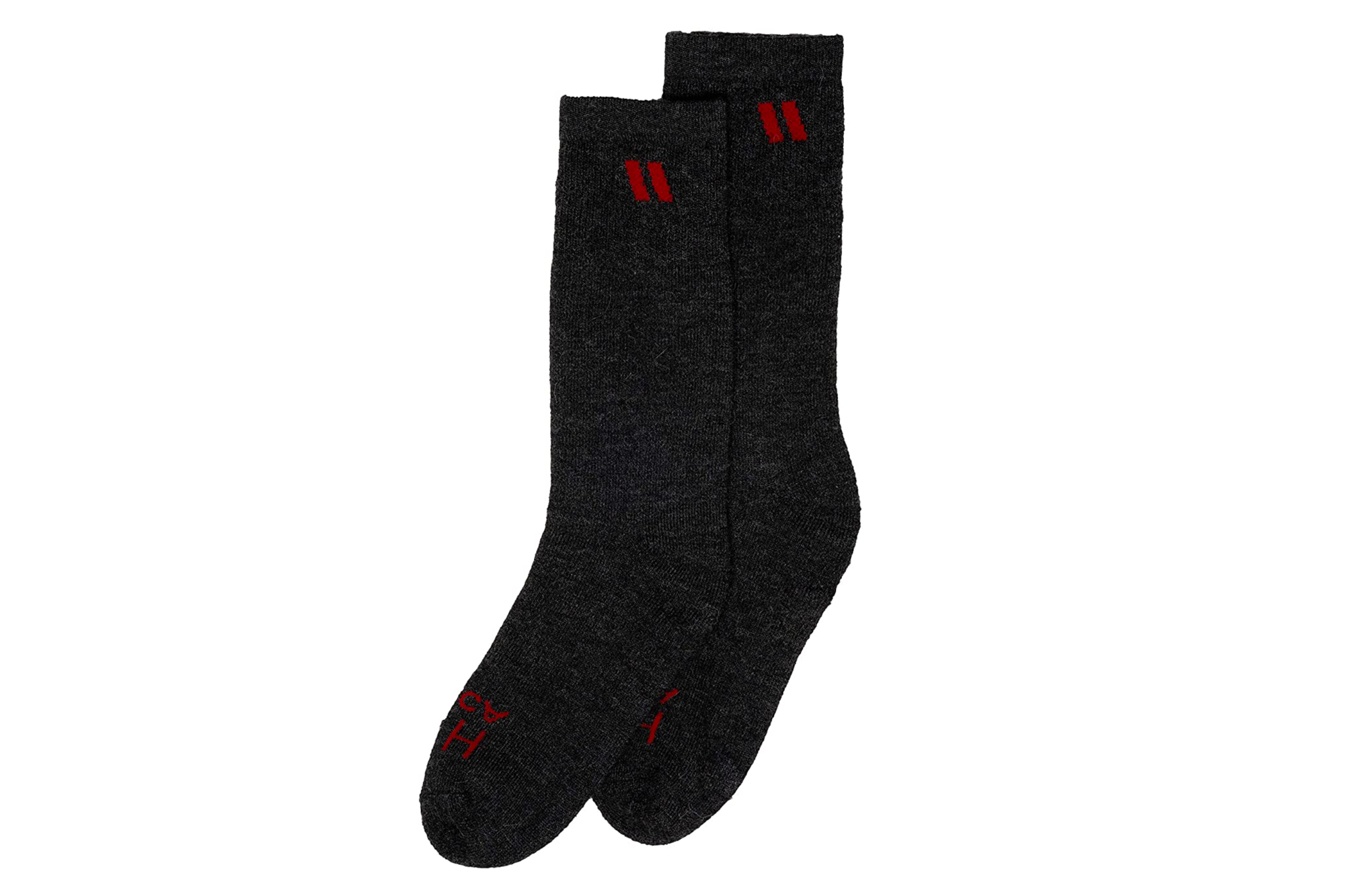
Follow Hollow Boot Sock
Specifications
Reasons to buy
Reasons to avoid
If you don't have socks that will insulate even when wet your ride might as well be over. Choose a natural fiber that will keep you warm even when wet and bring more than one pair with you.
Follow Hollow uses a blend consisting of 80% alpaca, 15% nylon, and 5% spandex. There's more natural fiber than competitors and alpaca wool is warmer than sheep's wool for the same volume. Compared to the standard Follow Hollow sock the Boot Sock is thicker and features more alpaca wool in the heel and toes.
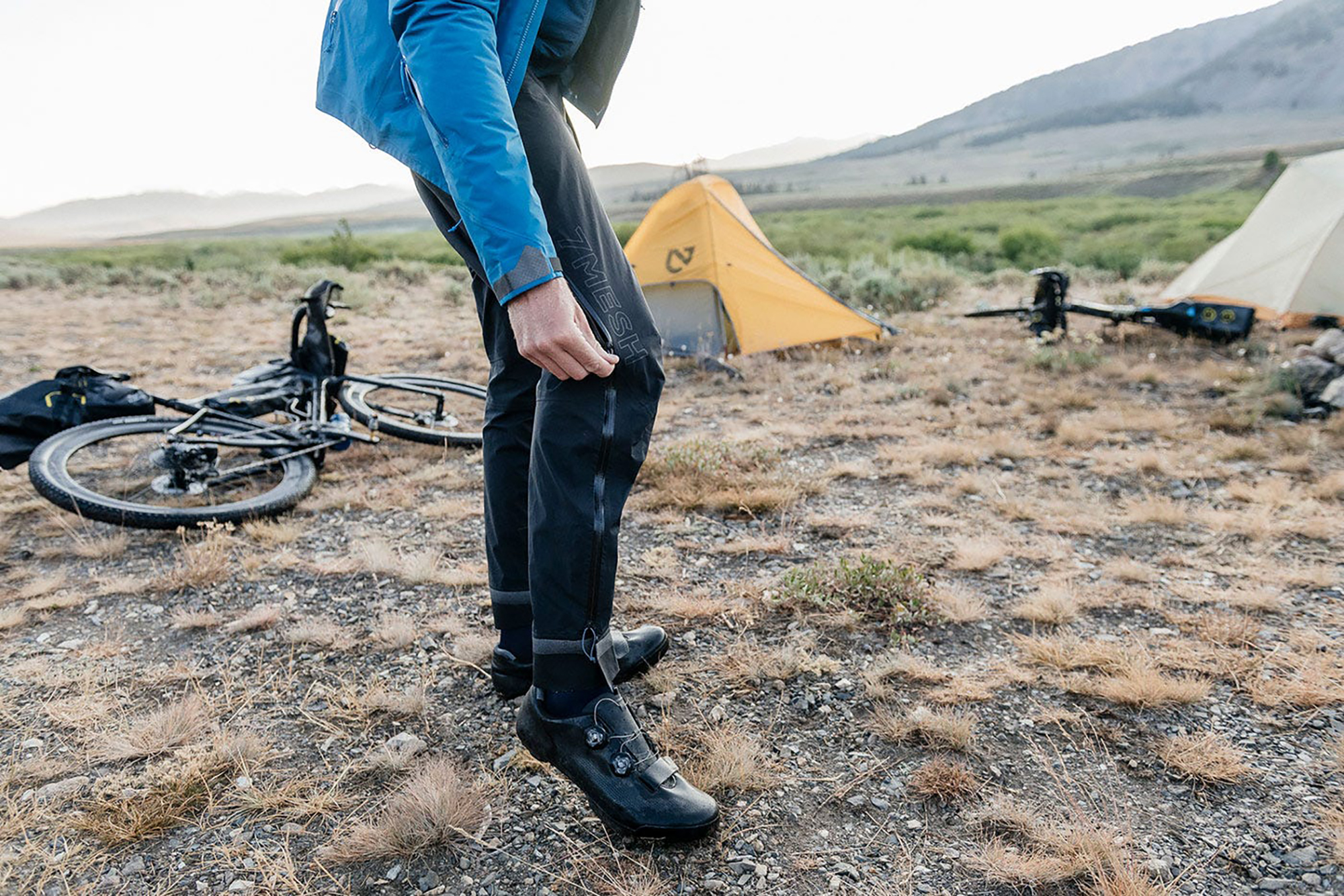
7Mesh Thunder Pant
Specifications
Reasons to buy
Reasons to avoid
When it's cold and dry, bib tights are great, but when the rain falls, the tights eventually end up wet and cold. It's why we're such a fan of the 7Mesh Thunder Pant because, once you slide them over the top of a pair of bib tights, you're going to stay dry, no matter way.
The bottom of the Thunder Pant legs features a wide, heavy hook and loop closure that will fit over your shoes. To help minimize water flowing down your legs into the shoe secure the pants over the top of your boots.
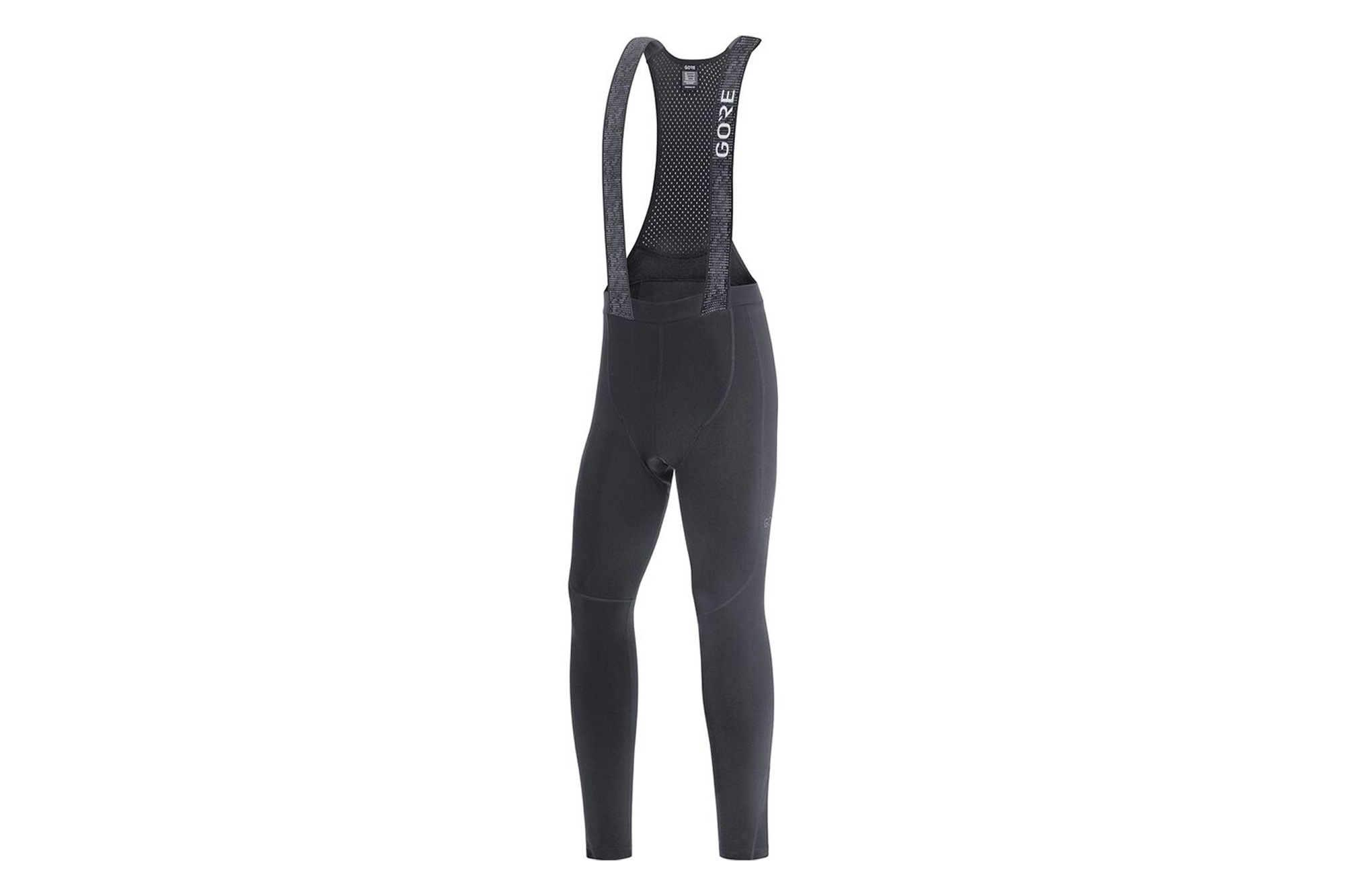
Gore C5 Thermo+ bib tights
Specifications
Reasons to buy
Reasons to avoid
In this configuration, paired with the 7Mesh over pants, the bib tight becomes a base layer and the desired traits are a bit different.
Sure, the Gore C5 thermo bib tights are not the warmest bib tights available, but they are very comfortable without being particularly compressive, have a great chamois, and do a great job wicking sweat. The fabric itself features a fleece thermo lining that feels great against the skin.
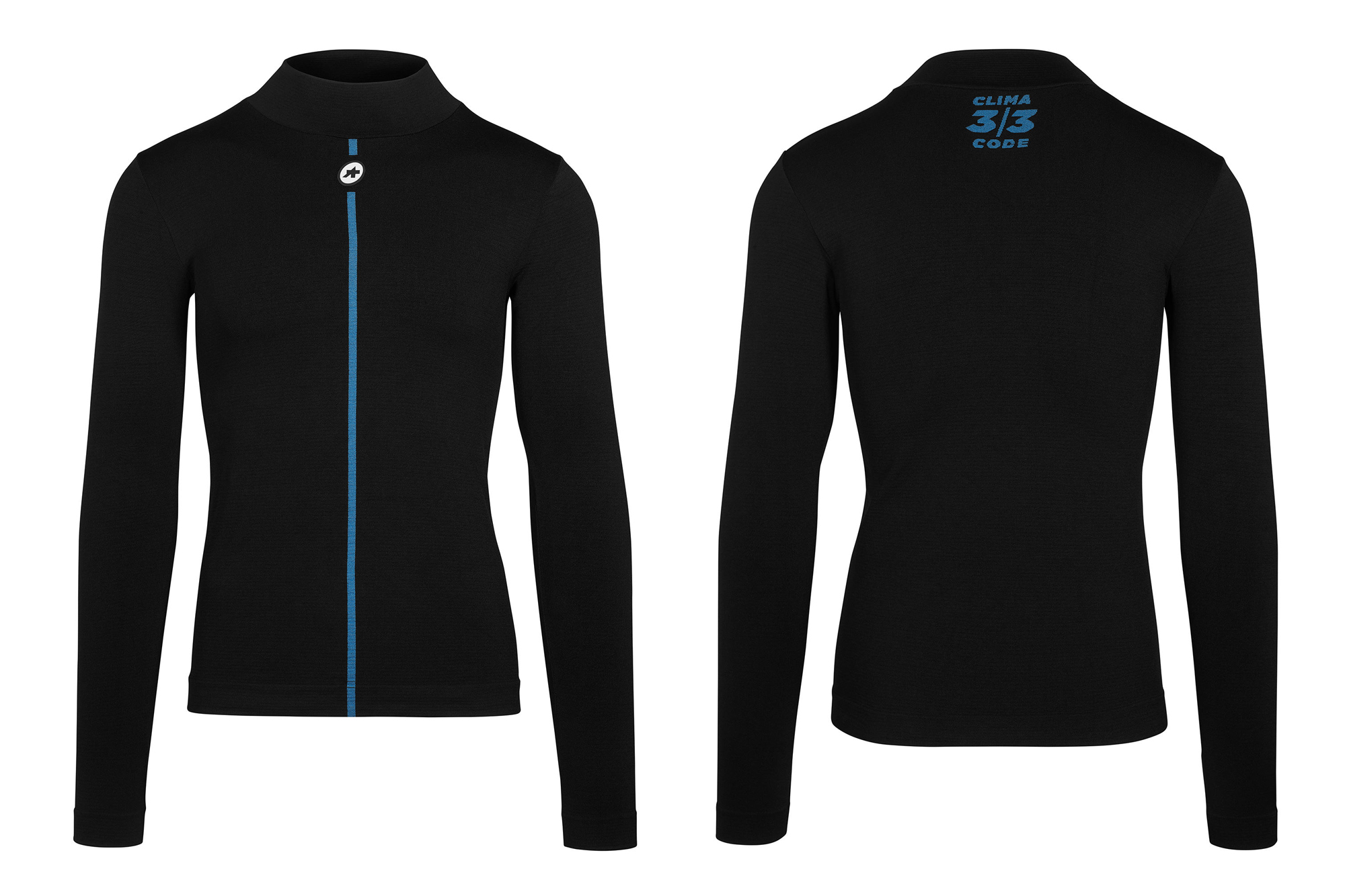
Assos Winter Long Sleeve Skin Layer
Specifications
Reasons to buy
Reasons to avoid
The base layer is such an important piece of keeping warm in the winter and the Assos long sleeve winter base layer delivers on the promise to deliver warmth without excess bulk.
Assos tackles the challenge with a knit design that feels a bit like a favorite sock. This approach has the added benefit of reducing seams. It's thin enough to layer while still being able to hold air for warmth. Even when thoroughly soaked, it's still able to hold heat and there's just enough collar for warmth without bulk.
Keep in mind that because of reduced stretch it may be necessary to size up a size compared to your normal base layer sizing.
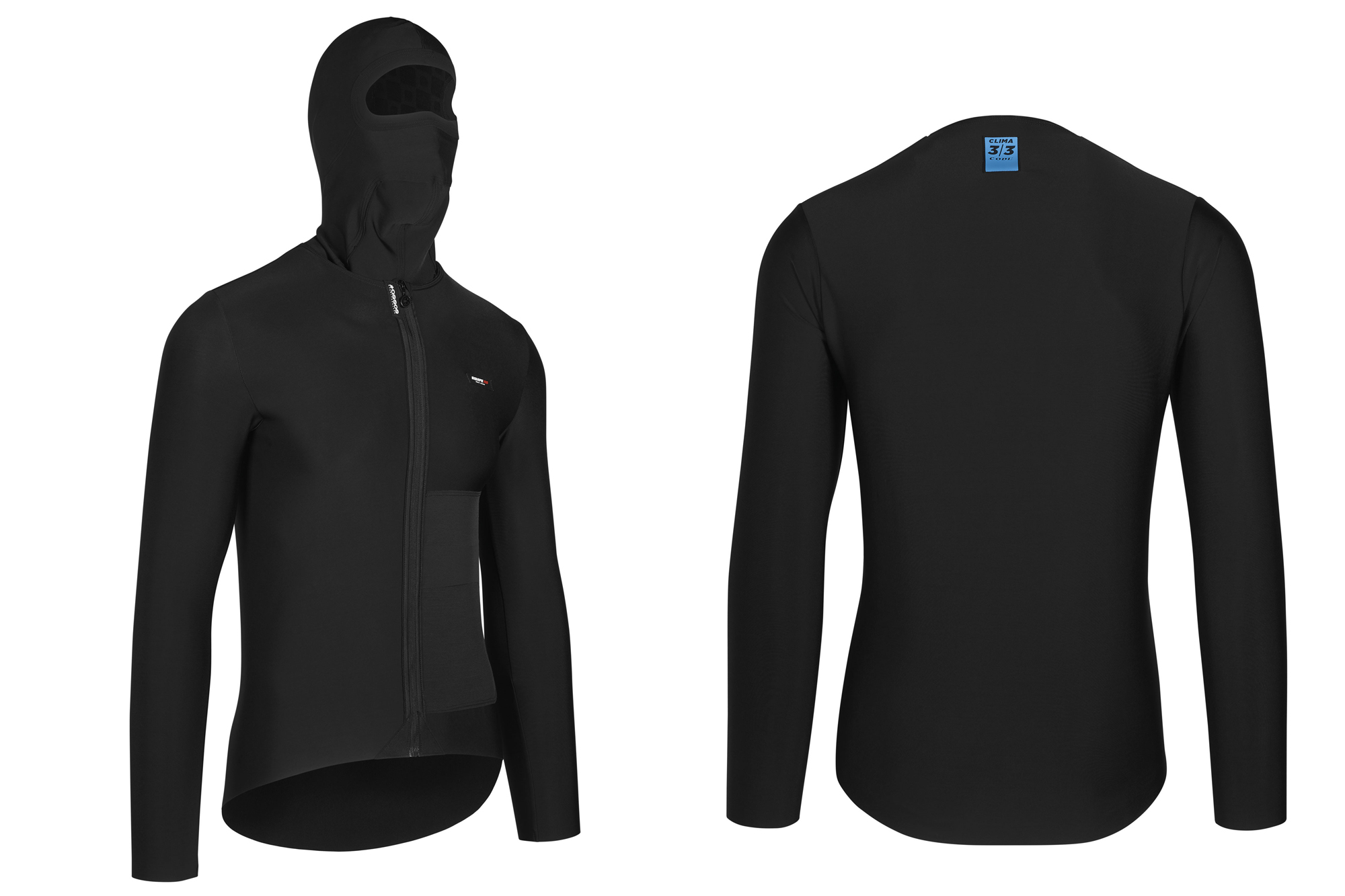
Assos Equipe RS Long-Sleeve Mid Layer Thermobooster
Specifications
Reasons to buy
Reasons to avoid
This mid-layer piece from Assos is a revelation. Early in the season, on warmer days, it works well enough as a base layer, and when you need to be as warm as possible, match it up with a warm winter base layer and layer it all under your jacket.
The best description of the fabric is that it's dense. Named, OSMOS Heavy textile, it's the brand's thickest brushed-back fabric.
There is less stretch than is normal for a core layer, so definitely worth sizing up but also keep in mind that the fit is very much performance-oriented. The details of the fit are odd, at best, when standing in your house. Get on your bike though and it completely disappears.
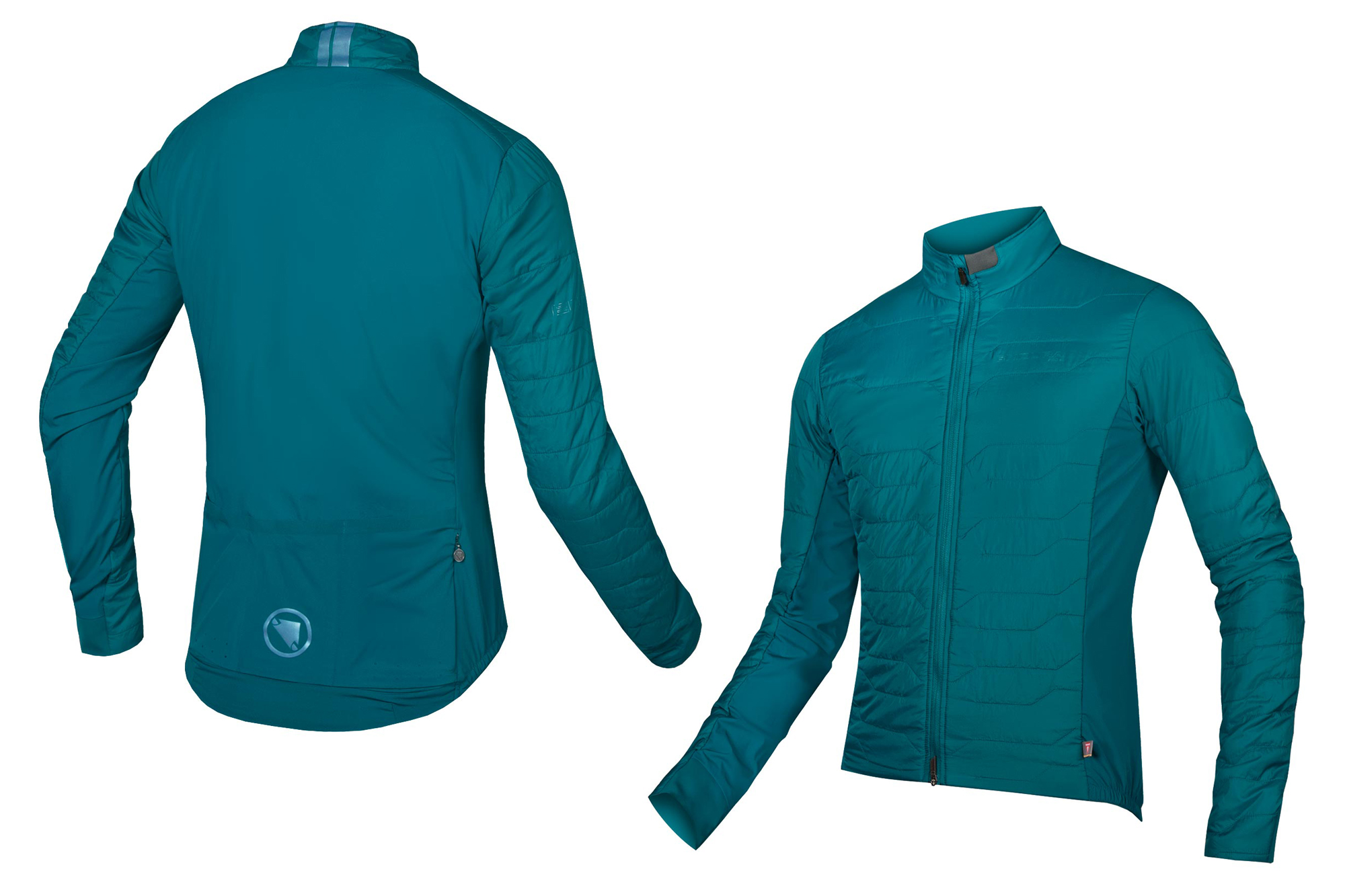
Endura Pro SL Primaloft II Cycling Jacket
Specifications
Reasons to buy
Reasons to avoid
Think of the Endura Pro SL Primaloft Jacket as a down jacket. Its warmth to weight ratio is excellent and it packs exceptionally well, but unlike natural down fibers, the Primaloft insulation is highly water-resistant and won't lose warmth if it does get wet.
This isn't an outer layer, though, and instead acts as another mid-layer. Unlike the Assos piece, it's not dense and holds lots of air. Warm air is what keeps your body warm and that's what this piece is all about.
It also acts as the only layer in this system with pockets, of which there are three, all of which are aligned to a similar configuration as a typical jersey.
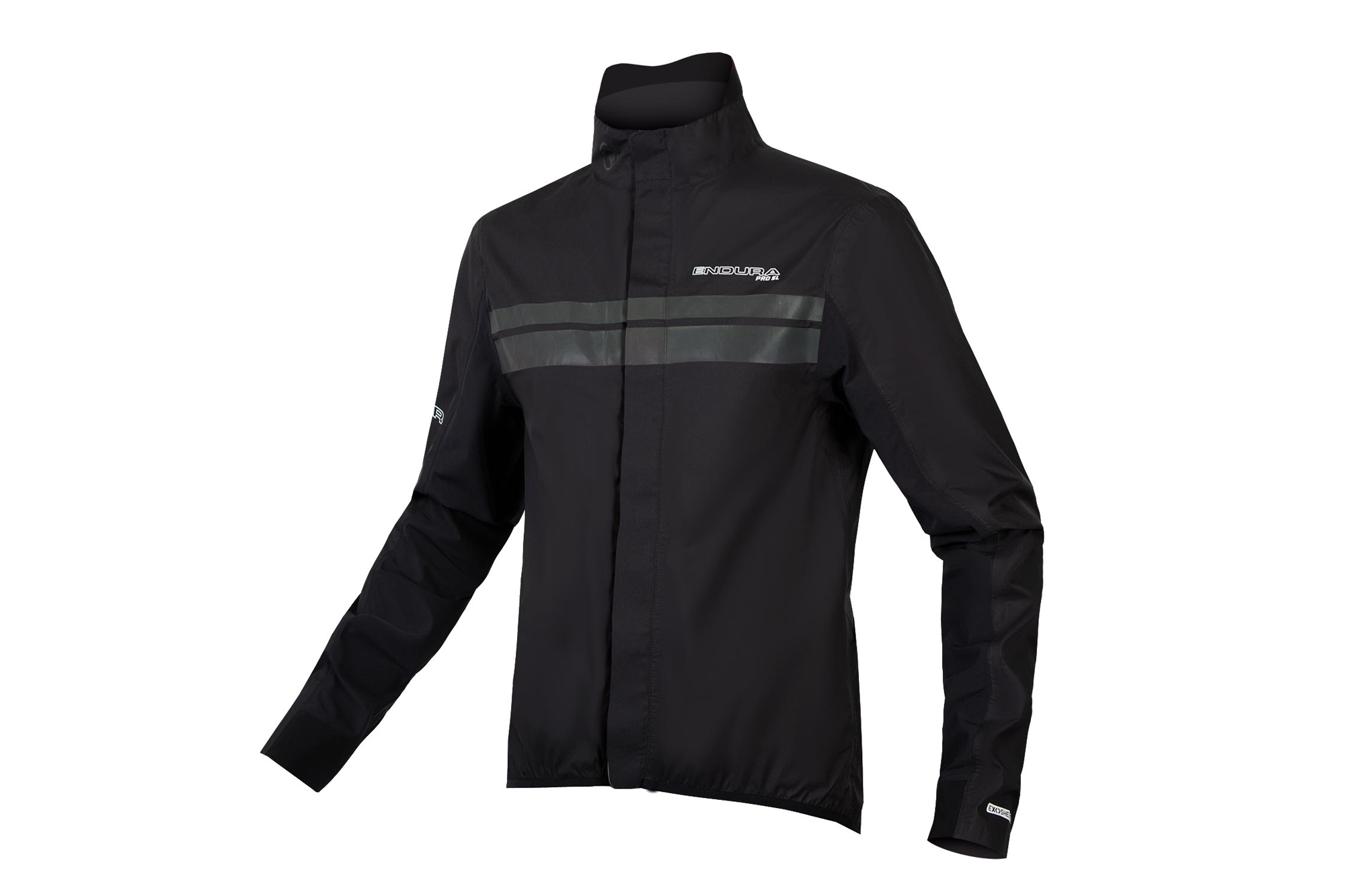
Endura Pro SL Shell Jacket II
Specifications
Reasons to buy
Reasons to avoid
The Endura Pro SL Shell Jacket II is thin enough that it could find use as an emergency jacket for much of the year, keeping you warm and dry no matter what. But what brings the piece to this list is how it pairs with the Primaloft Jacket. The two pieces work together so well that they could be one except they gain versatility and extra warmth by being two separate items.
The fit is tight enough that there is no flapping but there's plenty of room to layer without needing to size up. The shoulders are perfectly tailored for mobility without excess fabric and the arms are long. The underside of the sleeve at the wrist has a bit of stretch fabric for better fit and there is a classic long rear short front cycling design.
One downside is that the Pro SL Shell Jacket only has a small pocket for gels and a zippered pass through to reach the pockets on the Primaloft Jacket below.
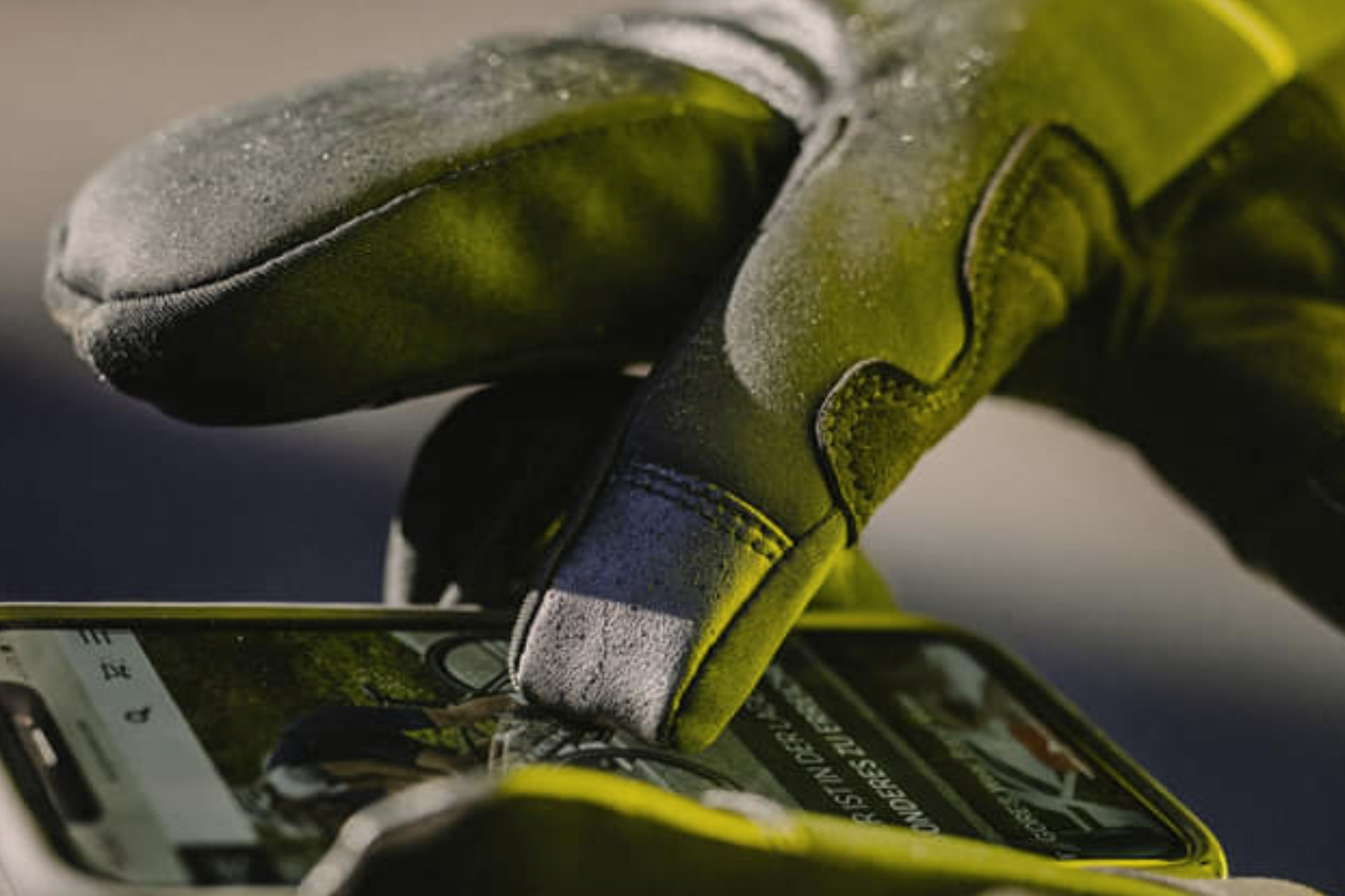
Gorewear Gore-Tex Infinium Thermo Split Gloves
Specifications
Reasons to buy
Reasons to avoid
The Gorewear Gore-Tex Infinium Thermo Split Gloves are not, strictly speaking, waterproof. They are, however, extremely water-resistant and very warm, and the excellent smartphone compatibility makes these some of the best gloves available.
Gore-Tex Infinium is a membrane that acts as the outer surface: water beads and runs off without leaving a buildup of moisture on the surface, and this kind of softshell technology can get overwhelmed with sustained rain but it works well enough for gloves.
Inside of the Gorewear Thermo Split Gloves there is a soft fleece lining and separate spots for each finger. The exterior splits into only two sections but the interior keeps each finger wrapped in its own insulation for maximum warmth.
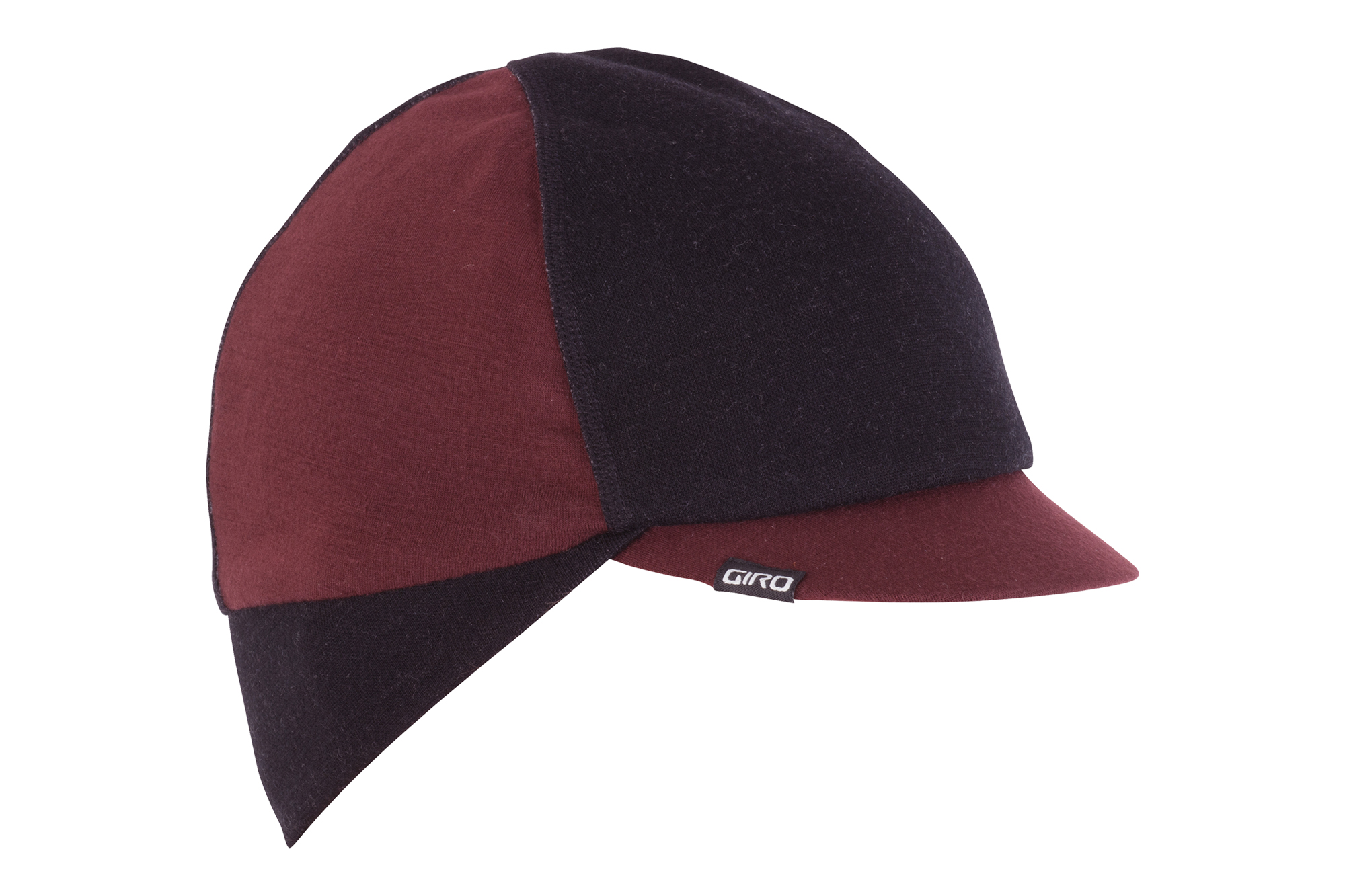
Giro Seasonal Merino Wool Cap
Specifications
Reasons to buy
Reasons to avoid
If you find yourself needing a hat for cold weather, the Giro Seasonal Merino Wool Cap is an excellent choice.
It's got a classic look and design to it, but details such as a slightly shorter brim and a panel construction designed to minimize bunching are modern touches. The aesthetics, though, are thoroughly classic.
Also classic is the choice of Merino Wool, an all-natural material that holds heat even when wet. No need to mess with a classic if it works.
Hard Shell vs Soft Shell fabrics
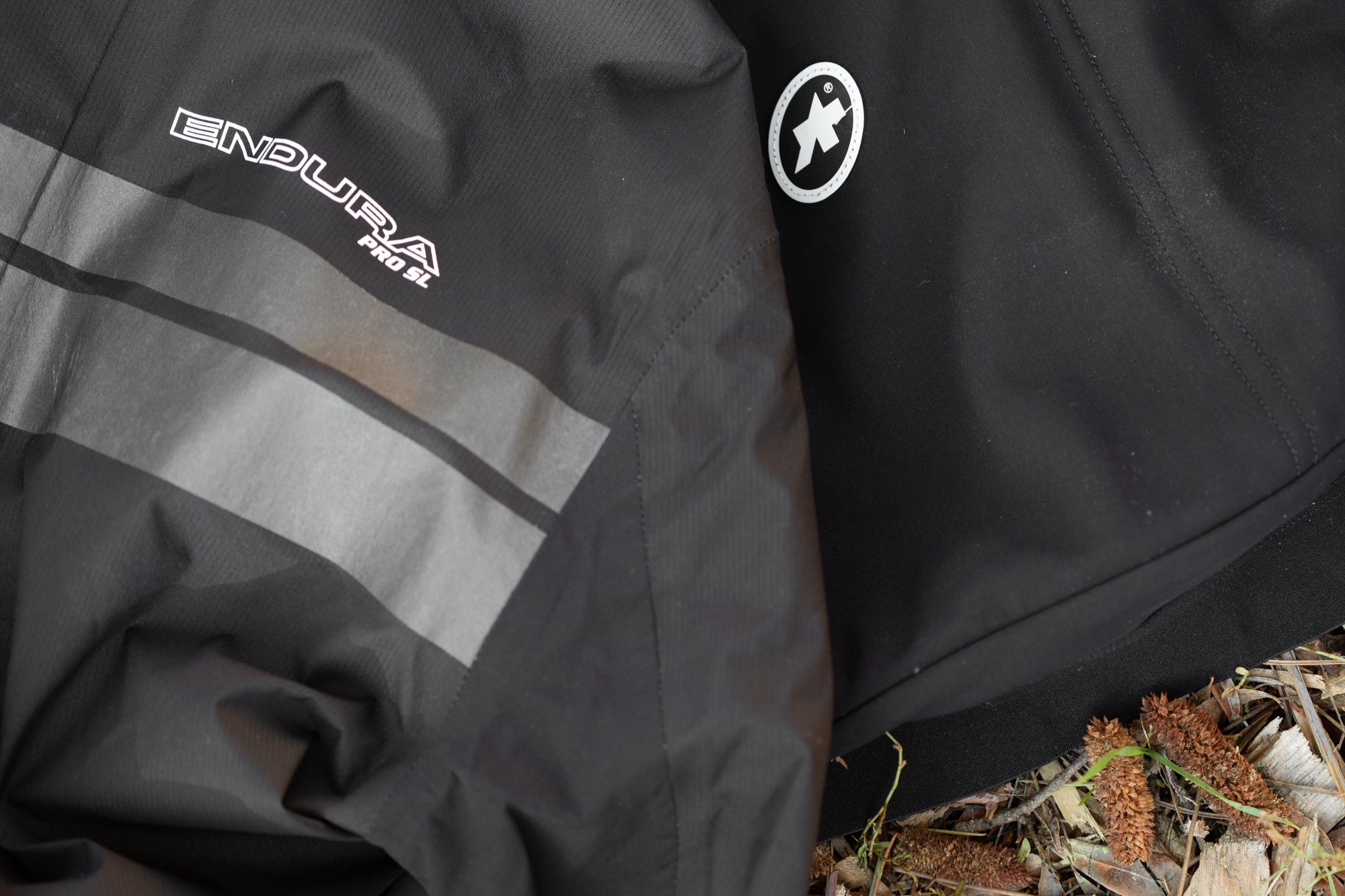
Modern winter cycling gear tends to split into hard-shell or soft-shell options. Soft-shell garments use a durable water repellent coating, and typically they also use the coating in combination with water resistant fabrics.
Whatever combination of these materials a particular company uses the effect is to have a soft exterior which means breathability.
There also very pleasant to ride in: there's no noise when they move and they feel better to touch. Hard-shell garments, meanwhile will be less flexible, less pleasant to touch, and less breathable.
This leads to the obvious question, if soft-shell garments are better in all these ways why is anything made with a hard-shell anymore?Because we like to be kept dry.
Basically, the more you work to keep water out, the less breathable a garment is. Soft-shell and hard-shell garments exist on a spectrum of necessary water resistance.
Ride long enough in hard enough rain and soft-shell garments will soak through. If you spend time riding in mud soft-shell jackets and bib tights will also hold onto the mud kicked up. They can be hard to clean and the caked-on mud and dirt makes you colder.
The recommendations in this list build from hard-shell outer garments. In the most extreme rain and cold hard-shell cycling gear performs better.
What else do I need to know?
Even if you have the right training and the right gear you might find yourself failing, and often it's because of an over-reliance on the gear.
You've gone out and purchased the best of the best and you expect it to perform. The reality is that all gear will, to some extent, fail after hours in the rain. Carry a bag and carry extras of the pieces that make the most sense.
Socks and gloves will eventually be wet and cold. It might sound strange to expect to change socks mid-ride but it can be the difference between finishing and not. It's also a real boost of the spirits when you pull a wet pair of socks off and start fresh after hours of cold, wet feet.
Have fun, be safe, and conquer the biggest rides, no matter the weather.
The latest race content, interviews, features, reviews and expert buying guides, direct to your inbox!
Josh hails from the Pacific Northwest of the United States but would prefer riding through the desert than the rain. He will happily talk for hours about the minutia of cycling tech but also has an understanding that most people just want things to work. He is a road cyclist at heart and doesn't care much if those roads are paved, dirt, or digital. Although he rarely races, if you ask him to ride from sunrise to sunset the answer will be yes.
Height: 5'9" Weight: 137 lb.
Rides: Orbea Orca Aero, Cannondale Topstone Lefty, Cannondale CAAD9, Trek Checkpoint, Priority Continuum Onyx